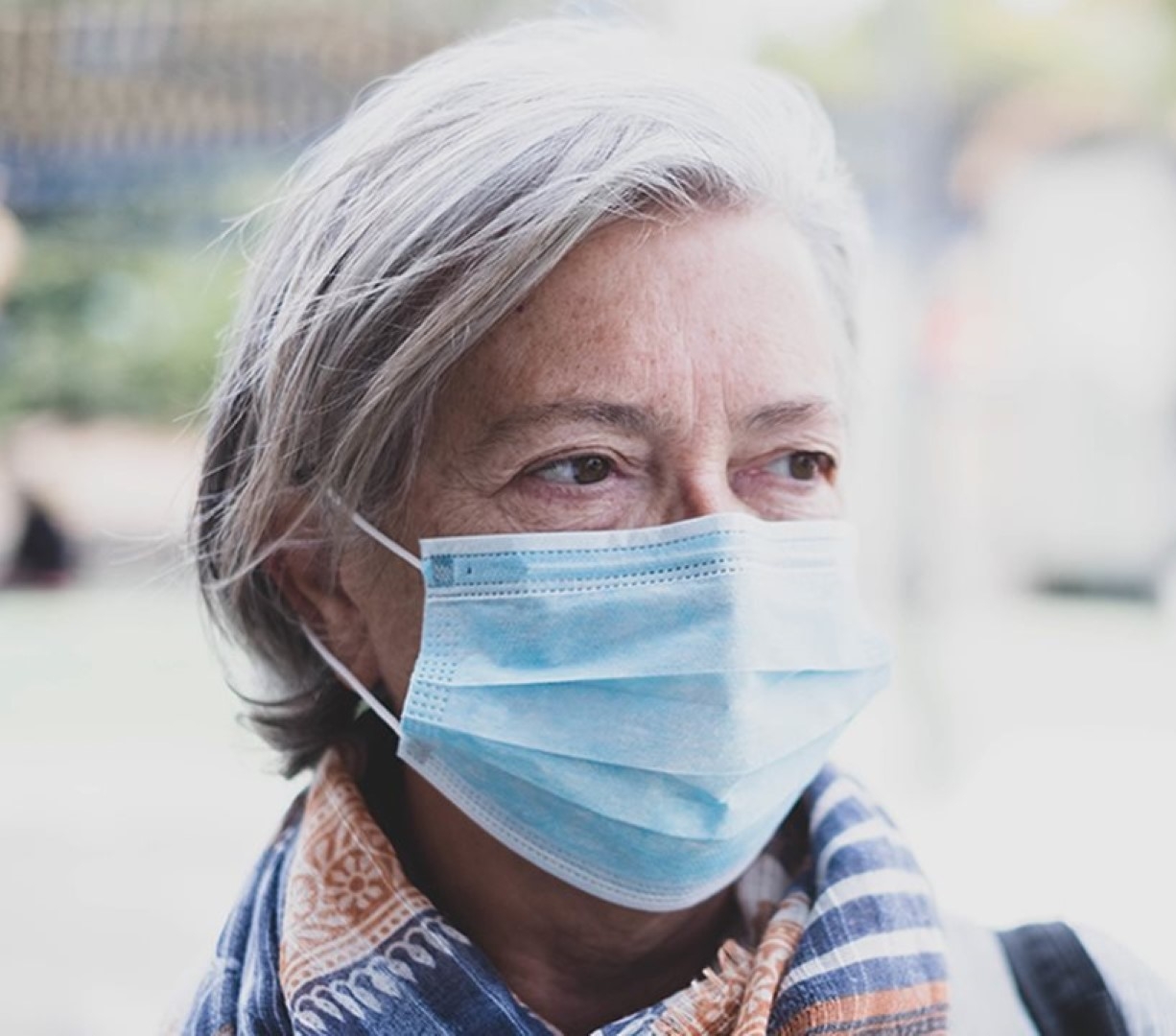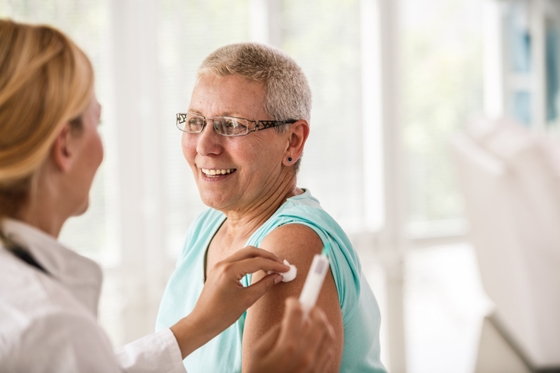
COVID-19 and cardiovascular disease
- If you have cardiovascular disease, you are at higher risk of serious complications from COVID-19, including having to go to hospital.
- It’s important you get your flu and COVID-19 vaccines to protect yourself and people around you.
- Stay healthy by making positive behaviour changes. These include eating a heart-healthy diet and being physically active.
Novel coronavirus disease 2019 (COVID-19) is an infectious disease caused by the severe acute respiratory syndrome coronavirus 2 (SARS-CoV-2).
People with cardiovascular disease are more likely to get serious COVID-19 complications. They have a higher risk of needing to go to hospital, and of dying.
COVID-19 can also make a person’s existing cardiovascular disease worse.
What is the link between COVID-19 and cardiovascular disease?
COVID-19 can affect the cardiovascular system in many ways, including widespread inflammation.
This can progress to lung injury, heart muscle injury, and impaired heart function.
In addition to cardiovascular disease, other health conditions are common in people hospitalised with COVID-19 and are associated with an increased risk of death. These conditions include:
COVID-19 can cause cardiovascular complications, including:
People who smoke also have an increased risk of developing severe illness from COVID-19.
Read more, here.
Looking after your heart health
There are things you can do to look after your heart health. These are especially important if you have cardiovascular disease.
Get your annual flu vaccine
- It’s important for people with cardiovascular disease get their flu vaccination.
- The flu can trigger heart attacks. Getting the flu vaccine helps to prevent the flu and can help prevent heart attacks.
- By getting the flu vaccination, you can also help protect other people. This is especially important for people who are too sick or too young to be vaccinated.
Find out more about getting your flu vaccine, here.
Get your COVID-19 vaccine
- If you have cardiovascular disease, get your COVID-19 vaccine as soon as possible and keep up to date with your booster shots. This is because you are at higher risk of severe illness if you develop COVID-19.
- Having the vaccine means you are much less likely to become ill from COVID-19.
- While vaccines are showing to be highly effective at protecting people against infection and serious illness from COVID-19. It’s important to keep practicing simple precautions such as physical distancing, hand washing and wearing a mask when required.
- All vaccines available in Australia have been through a strict approval process. They meet the high safety and quality standards set by the Therapeutic Goods Administration.
Learn more about COVID-19 vaccines and how to book a vaccine appointment, here.
Stay connected with your doctor
If you have cardiovascular disease, it’s important you stick to your current treatment plan. This includes taking your medicines, such as medicines to manage blood pressure.
Stay connected with your doctor as needed. Many health professionals offer some services via telehealth. Ask your doctor if they offer telehealth appointments, as this means you may be able to have your usual appointment over the phone or video call.
Learn more about how to stay connected with your doctor, here.
Stay physically active
Regular physical activity has many benefits for your health, both now and in the future.
Increasing your physical activity from as little as 10 minutes a day to the Australian Government’s recommended 30 to 45 minutes a day, five or more days of the week can help reduce your risk of heart disease and heart attacks.
It can also prevent and manage many conditions and diseases, including some cancers, type 2 diabetes, and depression.
Learn more about how you can stay active at home during COVID-19, here.
Eat a heart-healthy diet
Eating a heart-healthy is one of the best things you can do for your heart health and to support your immune system.
What you eat and drink impacts several heart disease risk factors, including:
Blood pressure
Cholesterol
Weight
Diabetes risk
Learn how you can focus on healthy eating during COVID-19, here.
Don’t ignore a medical emergency
Your heart health matters and medical emergencies need urgent care.
Get medical help immediately if the symptoms of your heart condition become severe or become worse quickly. Don't delay getting help.
Recognising the symptoms of a heart attack could save your life or the life of a loved one.
If you are experiencing the symptoms of a heart attack, call Triple Zero (000) immediately.
Know the most common heart attack warning signs, here.
Look after your mental health
More people have been feeling lonely since the start of the COVID-19 pandemic.
We know that feeling isolated or depressed can increase the risk of cardiovascular disease. We also know that people with cardiovascular disease are more likely to experience depression.
BeyondBlue provide information and advice to help you look after your mental health. Trained counsellors are available 24/7 to speak with by calling 1800 512 348. Translating and interpreting services are available, as well as resources in languages other than English.
Learn more about BeyondBlue’s Coronavirus Mental Wellbeing Support Service and resources, here.
Lifeline are a national charity providing all Australians experiencing emotional distress with access to 24-hour crisis support and suicide prevention services.
Visit Lifeline to learn how you can be supported, here.
Stop the spread to protect yourself and others
There are things you can do to protect yourself and others from COVID-19.
If you have cold or flu like symptoms you should seek medical advice and get tested for COVID-19, even if your symptoms are mild.
Important ways to protect yourself include:
Wash your hands often with soap and water often
Cover your coughs and sneezes with your elbow or a tissue
Use alcohol-based sanitisers
Avoid touching your eyes nose and mouth
Practice physical distancing to limit close contact
Learn more about the symptoms of COVID-19 and how to protect yourself and others, here.
Where to go for trusted information
It’s important to use trusted sources of information to stay up to date about COVID-19 and vaccines.
For updated information on COVID-19, vaccines, and local outbreak information. Visit the Department of Health's website, here.
Information is available in multiple languages.
You can also call the National Coronavirus Helpline on 1800 020 080 for information and advice about COVID-19 and vaccines. For translating and interpreting services call 131 450.
Unsure if you are at risk of cardiovascular disease?
Reducing your risk of cardiovascular disease starts with knowing your risk factors. This is so you can make positive behaviour changes. Most heart attacks and strokes can be prevented with healthy choices.
Learn more about cardiovascular disease risk factors, here.
Further information:
COVID-19 Department of Health resources
Learn about the symptoms of COVID-19, how to get tested and how to protect yourself and others, here.
National Indigenous Australians Agency COVID-19 resources for Aboriginal and Torres Strait Islander people, here.
Information about COVID-19 vaccines
References
- Vosko I, Zirlik A, Bugger H. Impact of COVID-19 on Cardiovascular Disease. Viruses. 2023;15(2):508.
- World Health Organization. Coronavirus. World Health Organization. https://www.who.int/health-topics/coronavirus#tab=tab_3
- Pellicori P, Doolub G, Wong CM, et al. COVID‐19 and its cardiovascular effects: a systematic review of prevalence studies. Cochrane Database of Systematic Reviews. 2021;(3)doi:10.1002/14651858.CD013879
- Reddy RK, Charles WN, Sklavounos A, Dutt A, Seed PT, Khajuria A. The effect of smoking on COVID-19 severity: A systematic review and meta-analysis. J Med Virol. Feb 2021;93(2):1045-1056. doi:10.1002/jmv.26389
- Australian Government. Australian COVID-19 Vaccination Policy,. Department of Health https://www.health.gov.au/resources/publications/australian-covid-19-vaccination-policy
- Graña C, Ghosn L, Evrenoglou T, et al. Efficacy and safety of COVID-19 vaccines. Cochrane Database Syst Rev. Dec 7 2022;12(12):Cd015477. doi:10.1002/14651858.Cd015477
- Mohammed I, Nauman A, Paul P, et al. The efficacy and effectiveness of the COVID-19 vaccines in reducing infection, severity, hospitalization, and mortality: a systematic review. Hum Vaccin Immunother. Dec 31 2022;18(1):2027160. doi:10.1080/21645515.2022.2027160
- Ernst M, Niederer D, Werner AM, et al. Loneliness before and during the COVID-19 pandemic: A systematic review with meta-analysis. American Psychologist. 2022;77(5):660-677. doi:10.1037/amp0001005
- Valtorta NK, Kanaan M, Gilbody S, Ronzi S, Hanratty B. Loneliness and social isolation as risk factors for coronary heart disease and stroke: systematic review and meta-analysis of longitudinal observational studies. Heart. 2016;102(13):1009-16 doi.10.1136/heartjnl-2015-308790
- Valtorta NK, Kanaan M, Gilbody S, Ronzi S, Hanratty B. Loneliness and social isolation as risk factors for coronary heart disease and stroke: systematic review and meta-analysis of longitudinal observational studies. Heart. 2016;102(13):1009-16 doi.10.1136/heartjnl-2015-308790
You might also be interested in...

Personalised medicine for cardiovascular diseases
This research is driven by clinically relevant problems of patients suffering from cardiovascular diseases (CVDs). My 1st theme focuses on advanced functional/molecular imaging technologies. Current clinical diagnostic imaging usually provides anatomical readouts only after irreversible damage & structural changes have occurred.

COVID-19 and the flu vaccine
Getting a flu shot now will help in the fight against COVID-19.

Clinical guidelines and position statements
A range of resources for health professionals to use as part of routine care.
Last updated12 April 2024
Last reviewed19 February 2024